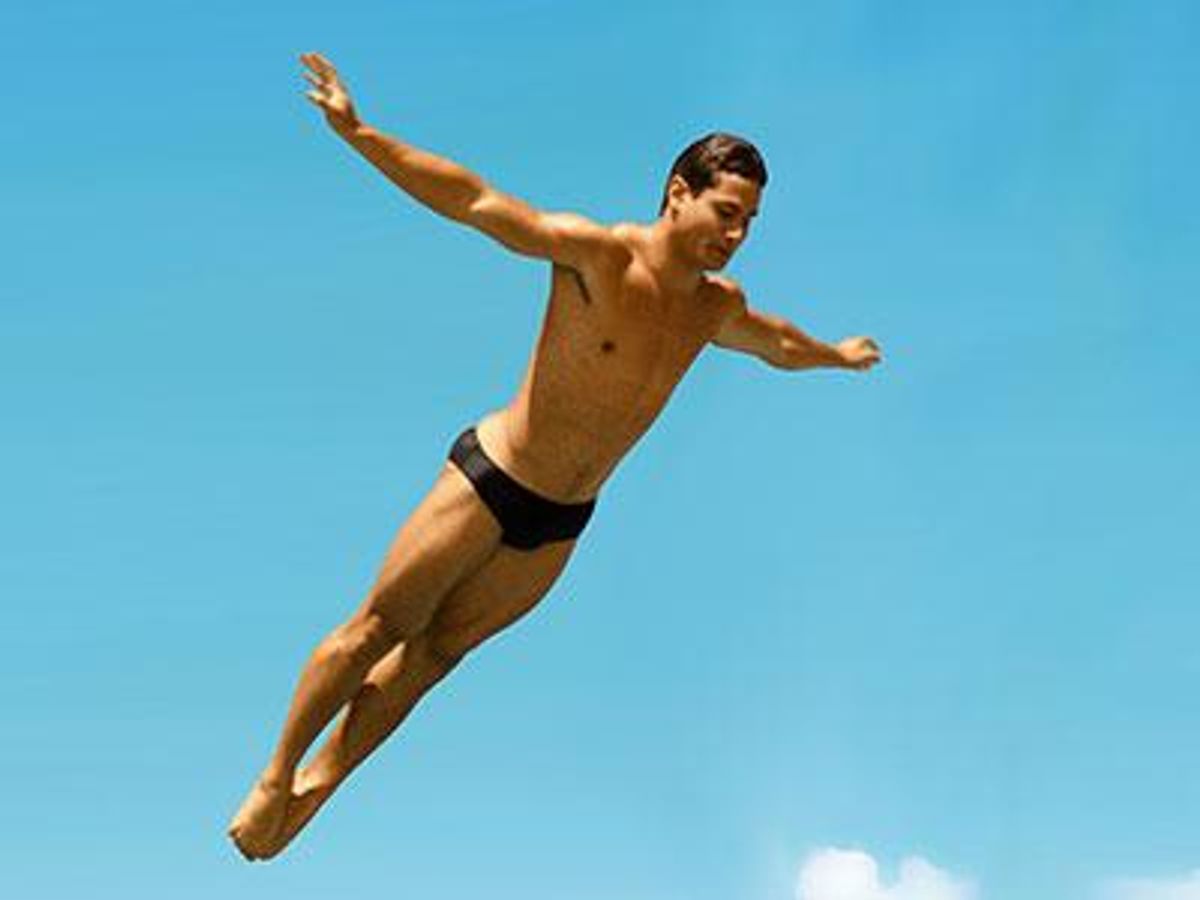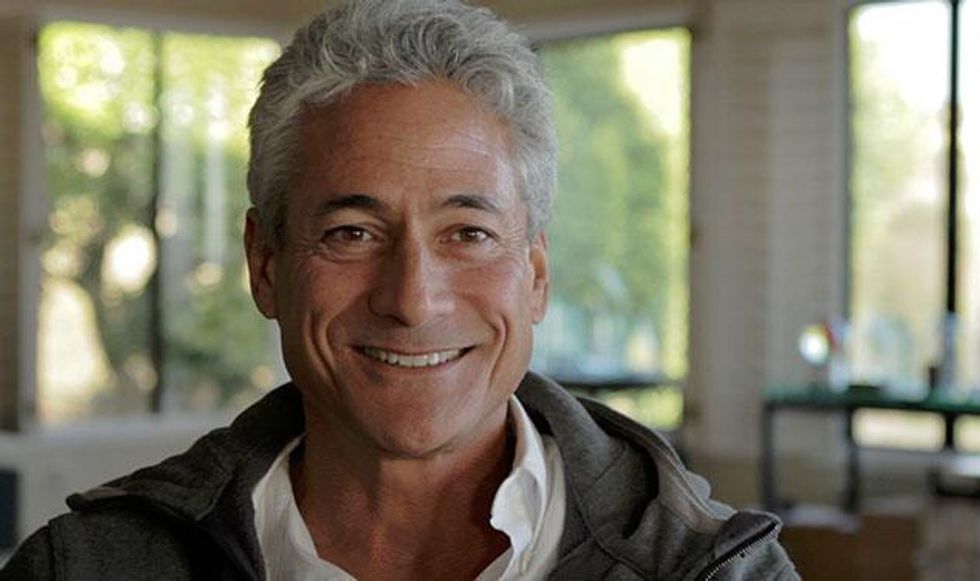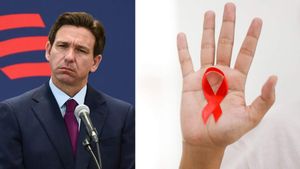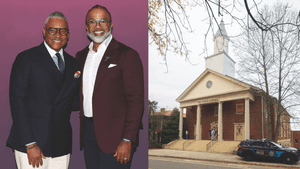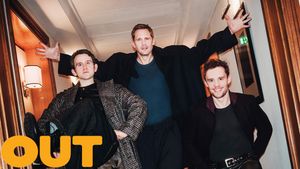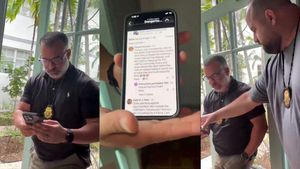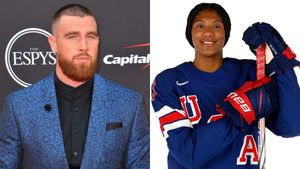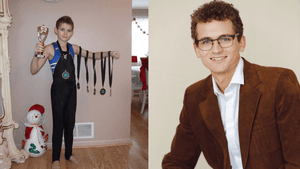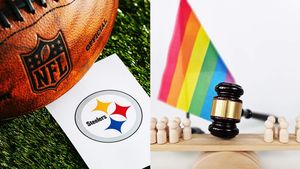
So much of the media this summer has been focused on Caitlyn Jenner, the former Olympic champion who came out as transgender and perhaps lesbian all in one swoop, that the time seems right for a feature-length documentary on another gay sports hero. The new HBO Sports documentary, Back On Board: Greg Louganis, offers a different kind of coming out, one no less uncomfortable. An intimate film, Back on Board follows the life of Louganis, a four-time Olympic champion, from his childhood of wins to his retreat from the sport and then later a return to diving after a long period of absence. But it begins with Louganis dealing with bill collectors, creditors, and a bank that’s about to foreclose on the house he’s lived in for 28 years. He’s broke. Not because, like many former stars, he snorted all his massive earnings or pissed it away on reckless adventures. No, in part, Louganis is broke because he was never really rich. An out gay, poz athlete — and even before that, a teen athlete that was perceived to be gay —Louganis never got the big endorsement deals that Jenner and Mary Lou Retton and other all-American types did, even after he won Olympic gold. While the film documents both highs (the wins, the future husband, the return to coach another USA team to Olympic victory decades later) and lows (losing his home, struggling with money and self-esteem), the saddest moment is surely watching Louganis wistfully talk about never getting be on a Wheaties box. To undo this wrong, we made Louganis his own Wheaties box, which several organizations inlcuding the Elton John AIDS Foundation, are using to push to make reality.
This documentary was incredibly revealing. To me talking about money is even harder than talking about being gay. Did you struggle with what to reveal to Cheryl during filming?
I think it was more difficult to share my financial difficulties, making some of same mistakes of my past in putting my faith and trust in those who were not worthy of it.
Even though you didn't call yourself an activist, or perhaps even realize what an impact you were having, but truth is that did change things for a lot of people. How do you feel about that in retrospect? Do you see that impact?
I am grateful to have lived long enough for many people to reach out to me and share their stories and challenges with other people, and of self-acceptance. I find inspiration in their stories, especially when I am feeling I am not doing enough, or that finances are getting in the way of me being able to do all the things people would like me to do.

There are more out gay athletes than ever before. Is the sports world ready to embrace gay or bi athletes now?
I feel our allies have really come forward to express their support, which only builds confidence and assurance of love and respect that is far reaching in allowing people to just be who they are.
HIV status is a whole different story, though, isn't it? Are there poz athletes that just aren't out right now?
Yes! There is still stigma surrounding HIV/AIDS — that you are sick, or there is something “wrong” with you. But with some of the advancements in treatment, both Eastern and Western, and some positive images like Magic Johnson and Ji Wallace and myself, it helps to ease that stigma. But we still have a long way to go. Prevention; early detection and early treatment — and knowledge — are power. Treatments are still very costly on many levels. And self-esteem and pride in oneself and others I feel is key.
In 2012, the Kaiser Family Foundation found that 27 percent of Americans thought HIV could be transmitted by sharing a drinking a glass; 17 percent thought a toilet seat could spread the infection; and 11 percent thought they could get it by sharing a swimming pool with an HIV positive person. How disheartening are those stats?
It is sad that people choose to stay in the dark about these prejudices in erroneous ideas. Education is the most powerful tool.
You never got your big endorsements, your Wheaties box, your Speedo ads, because you were a gay athlete. I know that had a huge impact financially, but I'm wondering how did that impact you emotionally?
The whole “commercialism” of the Olympics was just starting to take shape during my career: 1972 with Mark Spitz, then 1976 with [Caitlyn] then Bruce Jenner. We boycotted the 1980 Olympics, and then in 1984 with all the amazing stories, triumphs, and legacies — Carl Lewis, Edwin Moses, Rowdy Gains, Nancy Hogshead-Makar, the men’s gymnastics team, Jone Benoit and others —the one name the advertisers really rallied behind was Mary Lou Retton. It just goes to show there are no guarantees to financial success just for an Olympic gold medal. I also came at a time when we were really competing and performing in our sports for the sheer joy and pride in our accomplishments, and for the opportunity to prove ourselves on the fields of our sports and share our passions.

Do you think a gay athlete now could get these big endorsement deals?
I think the corporate world is getting there, just as the rest of this country.
A couple of others have followed, but you're the most visible HIV-positive athlete in the world still. How much of a responsibility do you feel to be healthy, live well, and "represent" because of that?
Well I think Magic surpasses me, but I feel this is just a part of my purpose, to lead more by example and live my life the way my Mom taught me. [She told me to] "leave everywhere you go better because you were there.”
Did you delay treatment for fear of the Olympic committee finding out?
No, my Doctor wanted to treat me very aggressively so I was put on medication almost immediately, but he was in regular contact with the Olympic Training Center to be sure none of my medications were on the banned list of substances, as we were drug tested regularly at major competitions. But they were looking for performance enhancing drugs, not the type of medications that I was on, which were far from enhancing!
If you're comfortable, I'd like to ask how are you today health-wise? Are you able to get your viral load to undetectable levels? Has treatment been good for you?
My T-cells have never been higher and my viral load is “undetectable.”

You and Johnny married in 2013. How meaningful was it when the Supreme Court essentially legalized marriage equality across the country earlier this year?
Since Johnny is from Louisiana it was extremely meaningful. Although there were a few hiccups in Louisiana and Alabama, but we are ecstatic!
Do you ever get tired of being treated like the poster boy for HIV?
I don’t view myself that way. I rarely read my press, so I don’t get caught up in how others view me — just my close friends and family — and really that is all that counts. And, of course, my husband I lean on a lot. [Laughs]
You walked away from your home of 28 years. What was the hardest part of that?
The dear friends I have there, the memories of Thanksgiving there with my Mom, the dogs I raised there, the serenity. But it could be rather isolating, and I am content to start a new beginning with my husband.
What were you most worried about with this documentary coming out?
I feel [producer/writer] Will [Sweeney] and [director] Cheryl [Furjanic] told my story with much love and compassion, so no, no worries, just joy and pride that HBO Sports picked it up and humbled they felt the importance of sharing my story.

Back On Board: Greg Louganis airs on HBO and HBO Now.
